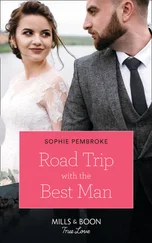Ruth Rendell - The Best Man To Die
Здесь есть возможность читать онлайн «Ruth Rendell - The Best Man To Die» весь текст электронной книги совершенно бесплатно (целиком полную версию без сокращений). В некоторых случаях можно слушать аудио, скачать через торрент в формате fb2 и присутствует краткое содержание. Жанр: Детектив, на английском языке. Описание произведения, (предисловие) а так же отзывы посетителей доступны на портале библиотеки ЛибКат.
- Название:The Best Man To Die
- Автор:
- Жанр:
- Год:неизвестен
- ISBN:нет данных
- Рейтинг книги:4 / 5. Голосов: 1
-
Избранное:Добавить в избранное
- Отзывы:
-
Ваша оценка:
- 80
- 1
- 2
- 3
- 4
- 5
The Best Man To Die: краткое содержание, описание и аннотация
Предлагаем к чтению аннотацию, описание, краткое содержание или предисловие (зависит от того, что написал сам автор книги «The Best Man To Die»). Если вы не нашли необходимую информацию о книге — напишите в комментариях, мы постараемся отыскать её.
The Best Man To Die — читать онлайн бесплатно полную книгу (весь текст) целиком
Ниже представлен текст книги, разбитый по страницам. Система сохранения места последней прочитанной страницы, позволяет с удобством читать онлайн бесплатно книгу «The Best Man To Die», без необходимости каждый раз заново искать на чём Вы остановились. Поставьте закладку, и сможете в любой момент перейти на страницу, на которой закончили чтение.
Интервал:
Закладка:
‘Can you direct me to the private wing?’
‘Straight down the drive, madam, and you’ll see a notice with an arrow.’ The porter called her madam because she had asked the way to the private wing. If she had asked for Ward Five he would have told her morning visiting in the public wards was forbidden and he might, because he was feeling benevolent, have called her love. On the other hand, he couldn’t imagine anyone like this ever wanting a public ward. She was madam, all right, a proper little madam.
Nurse Rose was late with her bed-making on Tuesday morning. She had seen to Mrs Goodwin by nine o’clock and stopped for a chat and a bit of buttering-up. You were half way to being a lady’s maid with these private patients and if they wanted you to paint their fingernails while they told you their life histories you couldn’t choose but obey. Just the same, she would have been well ahead but for those police men turning up again and wanting to ask poor Mrs Fanshawe more questions. Of course she couldn’t make Mrs Fanshawe’s bed while they were poking about and it was nearly twelve before she managed to get the poor deluded creature into a chair and the sheets whipped off.
‘It might take a letter a week to get to Germany, mightn’t it?’ said Mrs Fanshawe, taking her rings off and amusing herself by making them flash in the sunlight right into Nurse Rose’s eyes.
‘Weeks and weeks,’ said Nurse Rose, blinking. ‘You don’t want to worry about that.’
‘I should have sent a telegram. I think I’ll get you to send one for me.’
Once bitten, twice shy, thought Nurse Rose. She wasn’t even going to humour Mrs Fanshawe any more. Stick her neck out and her life would be a succession of errands for Mrs Fanshawe, running about the town sending crazy messages to a girl who didn’t exist.
‘Would you like me to brush your hair?’ she asked, pummelling the pillows.
‘Thank you very much, my dear. You’re a good girl.’
‘Back into bed then. Ooh! You’re as light as a feather. Don’t leave those lovely rings on the table, now.’
Nurse Rose had really been very helpful, Mrs Fanshawe thought. She didn’t seem or look very intelligent, but she must be. She was the only one who didn’t keep up this nonsense about Nora being dead. And how she envied her those rings! Funny little thing… When Nora came she would get her to run up to the flat and root out that paste thing she’d once bought on a whim at Selfridges. It wasn’t worth more than thirty shillings, but. Nurse Rose wouldn’t know that and she decided she would definitely give it to Nurse Rose.
She lay back comfortably while her hair was brushed.
‘While you’re getting my lunch,’ she said, ‘I’ll think how I’m going to word my telegram. Oh, and you might take my sister’s card away. It’s getting on my nerves.’
Nurse Rose was glad to escape. She came out of the room, pulling her bag of soiled linen, and because she wasn’t looking where she was going, almost cannoned into a tall dark girl.
‘Can you tell me where I can find Mrs Dorothy Fanshawe?’
‘She’s in there,’ said Nurse Rose. She had never seen any thing like the shoes the girl was wearing. They were of brown calf with a copper beech leaf on the instep and their shape was so strange and outlandish that Nurse Rose decided they must be the extreme of fashion. Nothing like them had ever been seen in Stowerton, nor, for that matter, Nurse Rose believed, in London. ‘Mrs Fanshawe’s just going to have her lunch,’ she said.
‘I don’t suppose it matters if that’s held up for ten minutes.’ Not to you, Nurse Rose thought indignantly, whoever you may be. But she couldn’t let those desirable shoes vanish without any comment and she said impulsively, ‘I hope you don’t mind my asking, but I do think your shoes are super. Where did you get them?’
‘Nobody minds a compliment,’ said the girl coldly. ‘They were made in Florence but I bought them in Bonn.’
‘Bonn? Bonn’s in Germany, isn’t it? Ooh, you can’t be! You can’t be Nora. You’re dead!’
Earlier that morning Wexford had quoted Justice Shallow and now, as he contemplated Jolyon Vigo’s house, he thought that this was just the sort of place Shallow might have lived in. It would have been a mature house already in Shakespeare’s time, a ‘black and white’ house, timbered, solid, so perfect a place to live in that it seemed in advance to confer upon its owner grace and taste and superiority. A climbing rose with yellow satiny flowers spread across the black striped gables and nestled against the tudor roses, carved long ago by some craftsman on every square inch of oak. On either side of the front path a knot garden had been planted with low hedges and tufts of tiny blossom. It was so neat, so unnatural in a way, that Wexford had the notion the flowers had been embroidered on the earth.
A coach-house of slightly later vintage served as a double garage. It had a small belvedere and a vertical sundial under its pediment. The garage doors were open – a single untidy touch – and within Wexford saw two cars. Again it amused him to note the general application of what he was beginning to think of as Wexford’s Law. A woman was in the act of opening the door of a pale blue Minor. She slammed it and, carrying a child in her arms, squeezed between the small vehicle and the huge, finned Plymouth, dragonfly blue, that stood a foot from it.
The phrase ‘a woman with a child’ somehow suggested a peasant and a shawled baby. Eyeing her, Wexford thought that to say a lady with an infant would be better.
‘What d’you want?’ she said in the sharp high-pitched voice of the local gentry. Before she could add, as she was evidently about to, that she never bought anything at the door, he announced himself hurriedly and asked for her husband.
‘He’s in the surgery. You go round by the pleached walk.’ Marvelling that anyone could say this without a trace of self-consciousness or humour, Wexford looked her up and down. She was a plain young woman, thin and dark with a worn face. She put the child into a pram and wheeled it down the path. The boy was big and handsome, blue-eyed and fair-headed. He looked as though by being born he had sapped his mother’s strength and left her a used-up husk. Wexford was reminded of a butterfly, fresh and lusty, that has escaped from a dried chrysalis.
He was not precisely sure what a pleached walk was, but when he came upon it there was no mistaking it and, smiling to himself, he descended a flagged step and passed into a green tunnel. The trees whose branches met and interwove above his head were apples and pears and already the young green fruit hung abundantly. The walk led to some green houses and what had once been a stable, now converted into a surgery. Amid all this sylvan glory the notice giving the dentist’s working hours struck a discordant note. Wexford opened a latched horse-box door and entered the waiting room.
A pretty girl in a white coat came out to him and he reminded her of his appointment. Then, having no inclination for Elle or Nova, he sat down and viewed the room.
It was a funny place for Charlie Hatton to have found himself in and Wexford wondered why he hadn’t attended the dentist in the town. On these walls were none of the usual posters bidding young mothers to drink milk in pregnancy and bring their toddlers for a twice-yearly check-up. Nor was there any notice explaining how to get dental treatment on the National Health Service. You couldn’t imagine anyone sitting here with a handkerchief pressed to a swollen jaw.
The walls were papered in a Regency stripe and the one or two pieces of upholstered furniture looked like genuine antiques. The curtains were of dark chintz patterned with medallions. A small chandelier caught the sun and made rainbow spot patterns on the ceiling. Wexford thought the place was just like the sitting room of a person of taste. There were dozens like it in Kingsmarkham. But this was just a dentist’s waiting room and it made him wonder what the rest of the house would be like. He was in for a surprise. He was admiring a stylish flower arrangement, observing how cunningly a spray of jasmine had been made to tremble half in, half out of the vase and trail against the console table, when the girl came back and told him Mr Vigo would see him now.
Читать дальшеИнтервал:
Закладка:
Похожие книги на «The Best Man To Die»
Представляем Вашему вниманию похожие книги на «The Best Man To Die» списком для выбора. Мы отобрали схожую по названию и смыслу литературу в надежде предоставить читателям больше вариантов отыскать новые, интересные, ещё непрочитанные произведения.
Обсуждение, отзывы о книге «The Best Man To Die» и просто собственные мнения читателей. Оставьте ваши комментарии, напишите, что Вы думаете о произведении, его смысле или главных героях. Укажите что конкретно понравилось, а что нет, и почему Вы так считаете.












